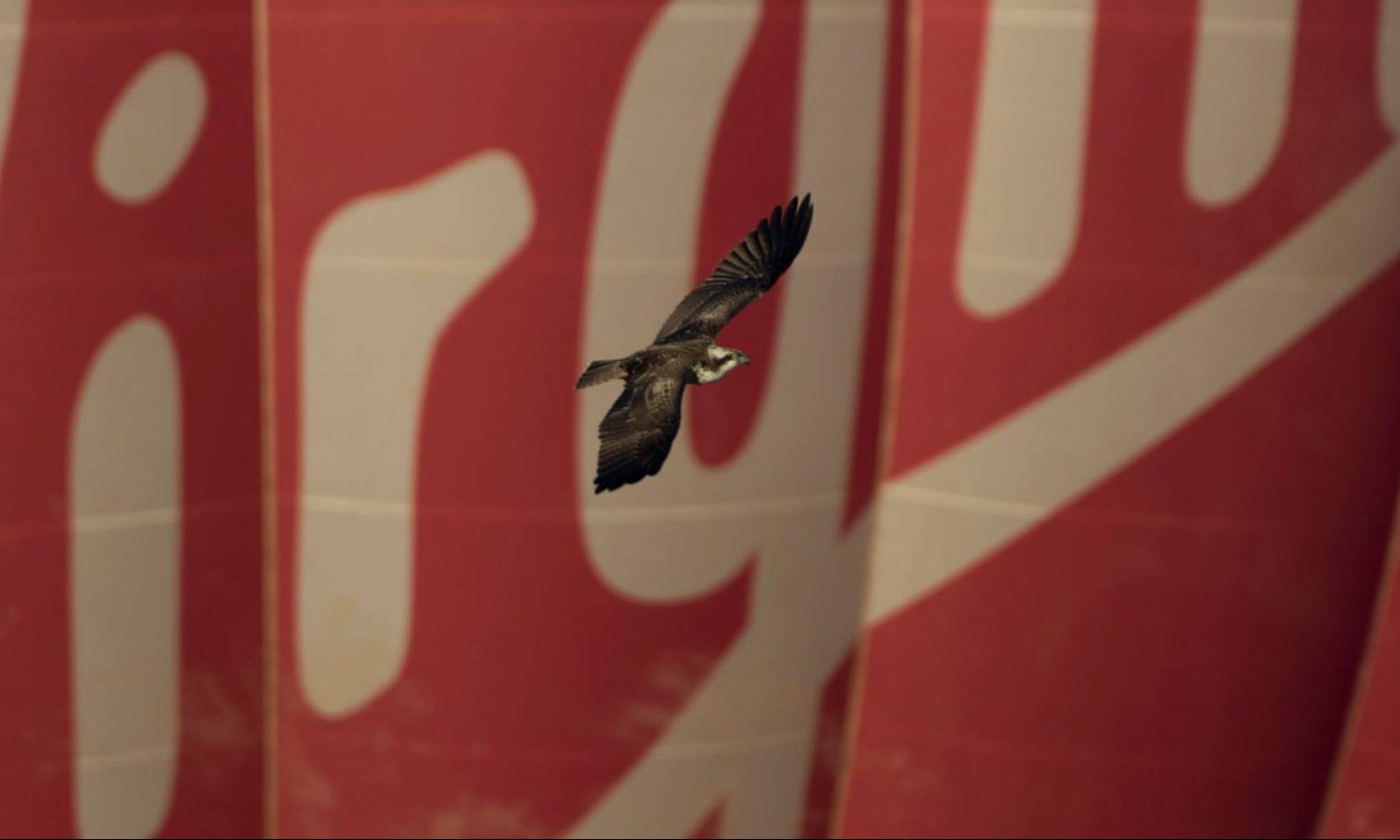A police investigation is under way after a hot air balloon came within a few metres of an osprey nest in Angus, causing four young birds to flee.
Virgin have apologised for the blunder, which took place at the legally protected site of Balgavies Loch near Forfar at around 8.45pm on Wednesday.
Pictures show the young birds fleeing for their lives as the balloon, which was attempting to land, approached their tree.
Thankfully, the young ospreys were spotted back at their nest on Thursday morning.
Disturbing ospreys is illegal under the Wildlife and Countryside Act, as there are less than 250 breeding pairs of the birds living in the UK.
Offenders can be fined up to £5,000 and given six months’ jail.
Mike Fenton, who witnessed the incident, said he had “never seen anything so reckless”.
Mr Fenton, 52, a joiner from Letham, near Forfar, said: “It was planned. I watched [the balloon] going down the loch, lower and lower, cameras came out for people to take photos. The juveniles took off in a panic. They had not returned half an hour later.
“He couldn’t have got any closer to the nest. The nest is well publicised so the pilot cannot claim ignorance.”
A Police Scotland spokesman confirmed enquiries into the matter are “ongoing”.
Meanwhile Virgin Balloon Flights has claimed the pilot had “no idea” the nest was there.
Their spokesman said: “We are truly sorry to hear that one of our balloons appears to have caused distress to nesting ospreys in the area.
“The exact locations of osprey nests are not made public by wildlife conservation trusts in order to protect the birds and their eggs from any disturbance from the public.
“Because of this, our pilot had no idea the nest at Balgavies Loch was there and it was an unfortunate coincidence that the wind took our balloon within about 50ft of its location as our pilot was looking for a place to land.
“Hot air balloons travel with the wind and can’t be ‘steered’ in the traditional sense.
“However, had we known this area was home to a protected species then our pilot would have marked it on his maps as such and may even have moved the flight to an alternative launch site to avoid the wind taking him over it.”
Ian Thomson, head of investigations at RSPB Scotland, confirmed that landing so close to an osprey nest is illegal, as the birds are protected by law.
He said: “We became aware of this incident. The osprey is listed on Schedule 1 of the Wildlife and Countryside Act, they are strictly protected from disturbance.
“Whilst it would be inappropriate to comment without knowing the specific details, I would urge witnesses to pass details to the police wildlife crime officer to investigate.”
Rab Potter, reserves manager at the Scottish Wildlife Trust, said: “Human disturbance is a real threat to the breeding and long term conservation of ospreys.
“If this had happened earlier in the season, when the chicks are highly dependent on their parents, there could have been serious consequences.”
At Balgavies Loch, people expressed shock at the incident.
Lynn Torrie from Forfar, who was walking her dogs, said: “The nest should be left alone. People shouldn’t go anywhere near it. You would have thought they’d have the decency to know better.”
Gordon Gibson, from Pennycuick, who had travelled to the site to photograph the ospreys, said: “The parents might have abandoned the young birds if it had been earlier in the season.
“I’m pleased that they have returned to the nest. I’ve spotted all four this morning.”
Roy Dennis MBE, who is one of the world’s leading experts on ospreys and other raptors said the ospreys could have died.
Mr Dennis, of the Highland Foundation of Wildlife, said: “This is an example of where sporting activities in the countryside can sometimes disturb very rare wildlife at a critical time in their breeding season.
“People are asked when they go in the countryside to respect wildlife but it is more than that – you have to be much more careful around protected sites.
“Balgavies Loch is a nature reserve so it is quite surprising that they are flying over it.
“If the birds have been flying for a good number of days which is probable, then it certainly wouldn’t have much effect.
“But if they were not yet, but very close to flying, when this happened, then they definitely might have died.”










